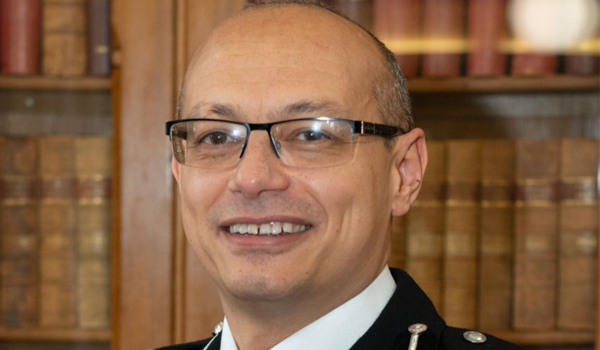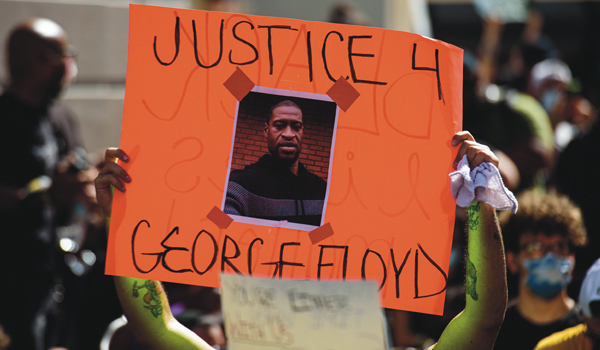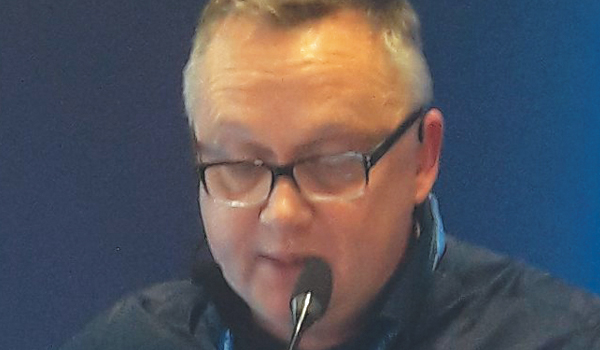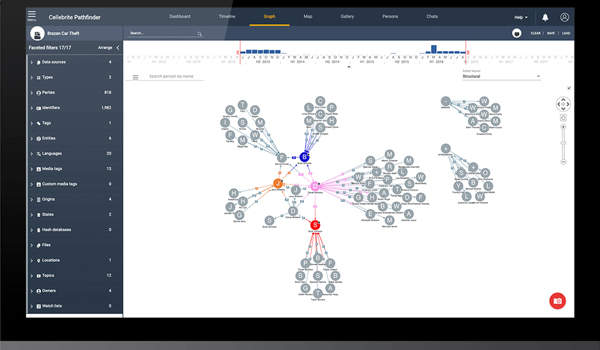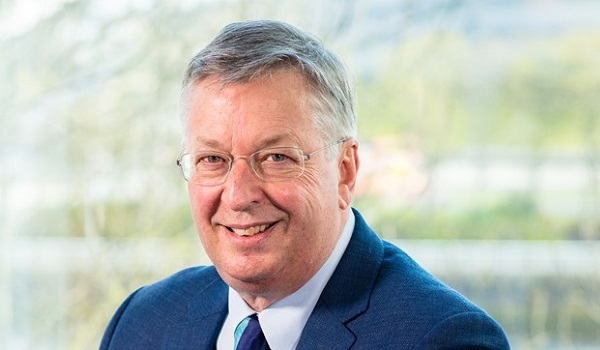The start of a journey...
Deputy Chief Constable Tyron Joyce has written an open letter to all police chiefs on the importance of the Police Race Action Plan, why it must succeed, and why he applied for the role of Programme Director.
I am the Programme Director for the Police Race Action Plan. I am also the highest-ranking officer of black heritage in England and Wales. My heritage does not give me insurmountable knowledge on race issues nor the right to speak on behalf of all other people of black heritage.
It is, however, part of my identity and helps me to recognise and understand some of the hopes, fears, and concerns that the recent publication of the plan has prompted. These are my personal views intended to generate debate and to take us forward.
I thought long and hard about whether to apply for this role; both from a personal and professional stance. I believe there is an overwhelming acceptance within policing of the need for further change, but this is not something that one person or group (of any race or belief) can achieve alone. I had to seriously consider if the support needed would be forthcoming; but I am pleased to have started this role with offers of support already coming in from chief constables and staff across the UK.
I know that the service can deliver this plan and make the changes required to improve our culture. But it must start with an inward look to confront the evidence and resulting emotion connected with issues of policing, race, and prejudice.
In 1999, I was a detective sergeant based at Brixton police station in the Metropolitan Police Service. I will never forget the moment that a senior officer addressed the team after the publication of the Macpherson Inquiry. He stated that ‘we must accept that we were all institutionally racist’ with little further discussion. This triggered an emotive response in me – did he just call me a racist? How do I respond to that? Where is the evidence? How will I explain this to my team, so they understand their personal responsibilities?
Fast forward to now; 23 years later and we are facing another pivotal moment in our cultural journey.
Some may label the plan as ‘woke’. Comments in this context seek to label any activity as superfluous, unnecessary, or perhaps a waste of money.
If used in this negative context my response is clear: is it ‘woke’ to seek to understand communities, to reduce crime, and to seek to prevent serious injury and deaths? Is it ‘woke’ to protect the most vulnerable in society wherever they live? Is it ‘woke’ to expect the police service to use its powers legitimately, building evidence on what is effective to improve our systems and processes? This is our journey.
As the dust settles after the launch of the first iteration of the plan, I have had the chance to reflect upon the debates on institutional racism that have been playing out in the media and no doubt amongst police personnel and other members of the public. The Macpherson definition of institutional racism that came out of the Inquiry into the investigation of the murder of Stephen Lawrence has been widely shared.
There are people both inside and outside of the service who feel that unless the police accept that the service remains institutionally racist this plan is doomed to fail.
This topic divide’s opinion and is hugely emotive. I do not seek to reduce the impact of these emotions and lived experiences, or their value. In my view Macpherson confronted policing with a stark truth; to address behaviour and practices which I believe were reprehensible. The debate is clear; there is evidence of progress since the report’s publication in 1999, but it enough for the police service to demonstrate this status no longer applies?
I believe that meaningful and lasting change does not rely solely on the admission of institutional racism. My fear is that if discussion does not move from a debate about these two words it achieves nothing more than a hardening of viewpoints already taken.
We must move beyond words to action upon which the police service can be judged; we have openly accepted that policing still contains discrimination, racism and unexplained disparities. Public scrutiny is enshrined in the delivery of policing and the creation of the plan exposes policing further to greater accountability. We want the public to come with us on this journey and engage with the potential this plan brings.
Now we must unite behind the need for change and take meaningful steps to achieve it.
The plan’s launch is the police service’s public acknowledgement that we must change and describes explicit activity it is already taking or will take. This isn’t avoidance but an acceptance of our accountability.
Progress against this activity will not only be under the scrutiny of our own staff, an Independent Scrutiny and Oversight Board (ISOB), the Association of Police and Crime Commissioners, Her Majesty’s Inspectorate of Constabulary, but vitally the communities we serve. I recognise that this does not lessen the impact on those who remain concerned, but it does provide a tangible opportunity to challenge and scrutinise progress.
I know that the vast majority of officers and staff are sickened by any racism, bigotry, and prejudice. However, it is not enough for staff to believe they are not racist; we must hold ourselves to a higher standard. That means becoming anti-racist; actively demonstrating intolerance of prejudice, challenging our current behaviour and practices. This is an absolute necessity if we are to improve our credibility to serve and protect all communities.
For the plan to succeed:
- All members of the police service must share the case for change and the personal accountability that is necessary to deliver on its commitment;
- The plan must fulfil its pledge to work alongside our black officers and staff and that of the community; and
- That change must be auditable, evident and open to scrutiny from as wide a representation of communities as possible.
This change in culture must ripple out from policing to our communities – from the behaviour that is demonstrated to colleagues, then partners, and finally the public. We must make the environment intolerant of bigotry or ignorance by your own personal examples. I know identifying and eliminating this behaviour isn’t easy; but that is an essential demonstration of professionalism and personal integrity, and both are non-negotiable.
In its simplest terms this plan is about delivery of our operational activities. Despite our assertion that most policing activity is lawful, we still cannot explain significant and sustained disproportionate use of our policing powers. This undermines our legitimacy and questions how effectively we protect the communities we serve. Our work to explain or reform our activity and improve the way in which we collate and consider data nationally does not threaten our police work but strengthens it.
Over the next six months, there will be wider engagement with stakeholders and communities to test and refine the actions. At the same time, the ISOB, chaired by Barrister Abimbola Johnson, will scrutinise the plan and the approach to delivery.
It is absolutely crucial that black people have the opportunity to feed into the plan, which is why we have launched a survey that allows anyone with expertise or an interest in the plan to share their views.
This is a start of a journey that I am asking you all to join me on, to make policing better for all communities.
Tyron Joyce
Deputy Chief Constable
Programme Director – The Police Race Action Plan

